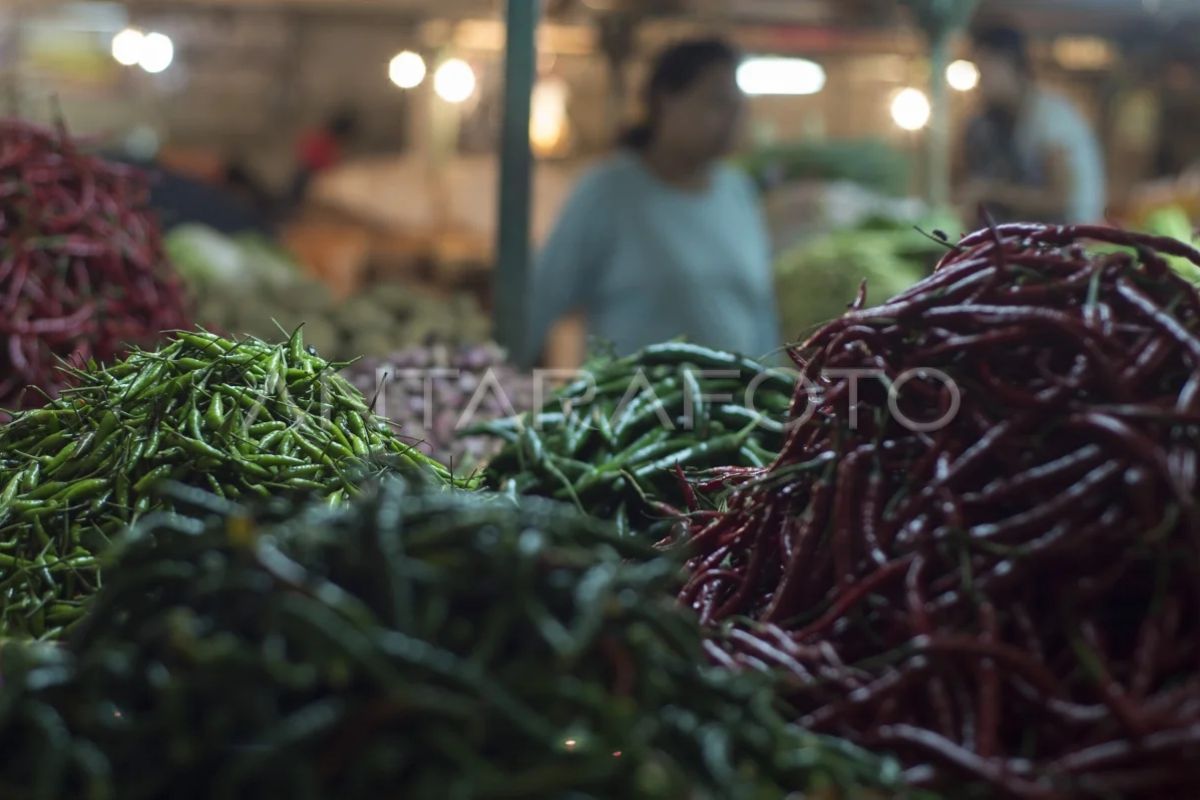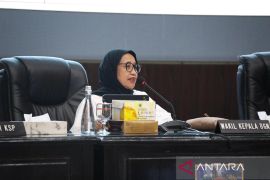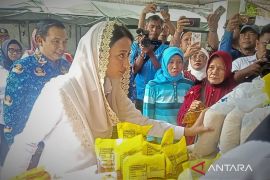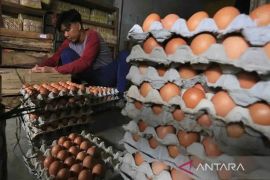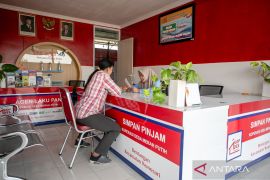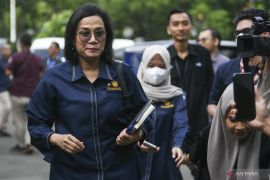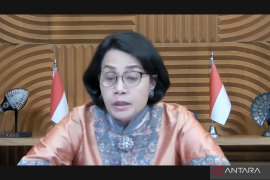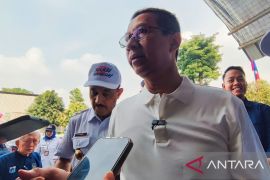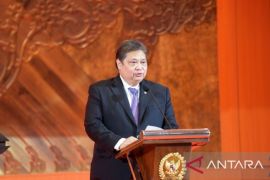Keeping inflation controlled is one of the crucial efforts to maintain people's purchasing power. Moreover, amid the post-pandemic economic recovery period, it is essential to ensure inflation remains controlled, as high and unstable inflation can put people's socioeconomic conditions and welfare at risk.
Hence, synergy, coordination, and joint efforts between the central and regional governments and all relevant stakeholders are integrated into one comprehensive force to control inflation so that it remains within the government's target of 2.5 percent, give or take one percent, in 2024.
The role of each region in Indonesia is crucial in maintaining the national inflation in accordance with the target, including Java as the most populated island in Indonesia. Currently, Indonesia's inflation is still within the target, namely 2.13 percent year-over-year (yoy) in July 2024.
Based on data from the Directorate General of Population and Civil Registration, Indonesia's population reached 282,477,584 people in the first semester of 2024.
Most of those people, namely 55.93 percent, live on Java island. To this end, it is essential to ensure inflation remains controlled in Java and other regions in Indonesia.
Inflation in Java is currently stable and maintained in accordance with the national inflation target. Inflation in six provinces in Java is still within the target range of 2.5 percent, give or take one percent.
On an annual basis, in July 2024, inflation in Jakarta was recorded at 1.97 percent; Banten, 2.30 percent; West Java, 1.16 percent; Yogyakarta, 2.26 percent; and East Java, 2.13 percent. This inflation achievement is expected to be maintained within the target range until the end of 2024.
However, Deputy for Coordination of Macro Economy and Finance at the Coordinating Ministry for Economic Affairs Ferry Irawan pointed to existing challenges in inflation control in Java going forward, including those regarding supplies, weather anomaly risks, and production in supporting food security.
The production of several food components, such as rice, was not as much as that recorded in the first semester. On the other hand, some commodities will be in high supply because of the harvest season, thereby raising the likelihood of lower prices. These challenges certainly need to be anticipated jointly.
Those challenges can be responded to with three strategic steps in supporting inflation control that had been agreed in a Coordination Meeting of the Central and Regional Inflation Control Team (TPIP-TPID) for Java.
The three main strategic steps are increasing food productivity by overcoming weather anomalies, strengthening production amid widespread conversion of agricultural land, and strengthening the integrated food ecosystem from upstream to downstream with a piloting model.
The steps taken to increase food productivity amid the risk of weather anomalies include four main points, with the first being strengthening and expanding the implementation of IP300 (planting rice thrice a year) and intercropping of rice and wetland rice, while the second pertains to strengthening the implementation of soil block and greenhouse methods for various chilies.
The third point entails expanding the utilization of True Shallot Seed (TSS), while the fourth point encompasses the utilization of superior weather-resistant seeds, implementation of organic cultivation, and utilization of artificial intelligence (AI).
Efforts to strengthen production amid the widespread conversion of agricultural land include three main points comprising accelerating the issuance of Regional Regulations on Sustainable Food Crop Land Protection and law enforcement on Protected Rice Fields as per the Presidential Regulation on Controlling Conversion of Rice Fields.
Some other efforts are strengthening land extension through the addition of new land and land optimization, urban farming extension, utilizing unused land or swampland, and creating new rice fields, as well as bolstering intensification through the use of technology, supported by agricultural production facilities and mechanization of agricultural facilities, including water pumping that is integrated with water sources.
Meanwhile, efforts to strengthen the integrated food ecosystem include six main points: preparing regional food balance sheets as an early warning system, which will begin in September 2024 for the Java region; strengthening the implementation of farmer partner programs and contract farming/off-takers; and expanding the implementation of the Regional Inflation Control Team (TPID) Kiosk business model.
The other efforts are strengthening the utilization of post-harvest technology and initiating food downstreaming, especially when a surplus occurs, to stabilize prices.
Furthermore, they include optimizing the utilization of insurance and agricultural financing for strategic food commodities and strengthening the capacity, competence, and mindset of farmers and agricultural extension workers, among other things, related to entrepreneurship, business management, finance, and resources.
Support from regional governments
According to Director General of Regional Development Assistance at the Ministry of Home Affairs Restuardy Daud, regional governments should continue to support several aspects in controlling inflation, namely stronger cooperation between the Central Inflation Control Team (TPIP) and the TPID as well as ministries and agencies, supported by additional efforts in refocusing activities and budget.
Furthermore, trade cooperation between regions is deemed necessary to bolster the distribution of supplies to maintain prices. Meanwhile, integrated technology utilization is the other aspect that is deemed essential in an effort to boost supplies and supply chain efficiency.
Regional governments should also continuously strengthen the provision of instant and accurate data and information on food prices to support policymaking and implement credible policies to manage inflation expectations to remain within targets, especially amid the dynamics of global economic uncertainty.
The strategic national inflation control measures in 2024 include controlling volatile food inflation, strengthening coordination of central and regional governments, bolstering synergy between ministries and agencies with support from regional governments, strengthening food security, as well as maintaining government rice reserves.
Access to finance
Strengthening agricultural productivity requires financial support. To this end, the government has prepared credit programs to support farmers, including the low-interest People's Business Credit (KUR) and Agricultural Equipment and Machinery (Alsintan) Business Credit.
Irawan noted that as of July 30, 2024, Central Java dominated in terms of the KUR disbursement, with Rp28.32 trillion (around US$1.8 billion).
The disbursement of KUR in Java island reached Rp82.57 trillion (around US$5.25 billion), contributing 49.68 percent of the national KUR disbursement.
Farmers in Indonesia can get credit or financing provided for agricultural equipment and machinery with a ceiling of above Rp500 million (around US$31,826) to Rp2 billion (around US$127,306).
There is also Special KUR for KUR beneficiaries who are members of business groups jointly managed in clusters with business partners, including community-based plantations, community-based farming, the micro, small, and medium enterprise (MSME) industry, or other productive commodities.
The advantage of the Special KUR is that beneficiaries in the production sector can access KUR repeatedly with an interest of six percent, as the interest will not increase.
With the support of financing access, farmers can optimize agricultural production to improve their welfare and support sustainable economic growth for the country.
Furthermore, with the synergy and cooperation of all stakeholders, it is hoped that the implementation of inflation control strategies can be successful and support Indonesia in maintaining inflation within the target until the end of 2024.
Related news: Cheap Food Movement conducted 6,116 times in 2024: Bapanas
Related news: Indonesia's regional govts urged to create SOP for inflation control
Related news: Regions urged to bolster cooperation to optimize inflation control
Translator: Martha Herlinawati, Raka Adji
Editor: Azis Kurmala
Copyright © ANTARA 2024
